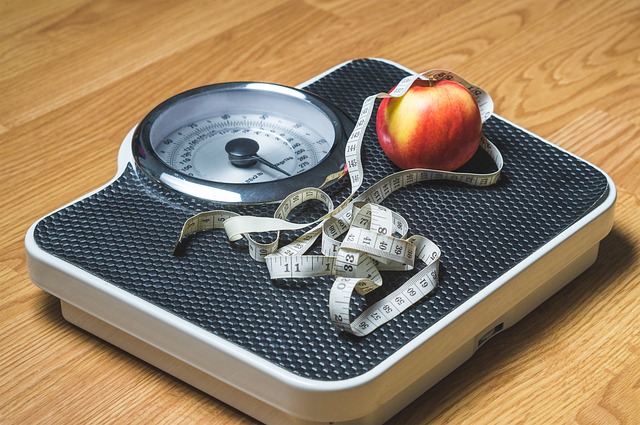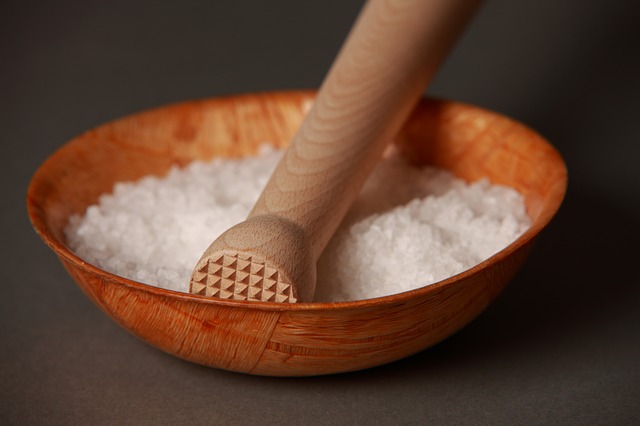‘Can I lower blood pressure without medicines?’ Has this question ever crossed your mind?
What is more worrying about this is that the American Heart Association now defines high blood pressure as pressure over 120/80 mmHg. Previously, this value was 140/90 mmHg.
This means that you could now have high blood pressure and not even know it.
Hypertension is sometimes called a ‘silent killer’. This is because it rarely produces any symptoms.
However, where the complications of high blood pressure occur, then symptoms such as chest pain, breathlessness, lower urine output (from kidney involvement) and dizziness may occur. These symptoms form a part of hypertensive emergency and reducing blood pressure within 24 to 48 hours is essential.
This way the organ damage can be halted.
Whenever I have diagnosed someone to have high blood pressure, a common question that I am asked is whether medication is actually required.
This is a perfectly normal question as the thought of having to take medications can be quite daunting.
It is important to remember that hypertension management is not just medications alone. Certain changes need to be made in one’s lifestyle in order to keep blood pressure under control.
Sometimes, in early stages hypertension, medication is not required and simple lifestyle changes are sufficient.
Lower Blood Pressure Without Medicines
Here are some simple lifestyle measures that can help you keep your blood pressure under control.
Lose Weight
Being overweight is a common risk factor in the development of high blood pressure. It is also a risk factor in the development of heart disease and other ailments.
A common problem that is associated with being overweight is sleep apnoea. This is a condition where it becomes difficult to breathe when one is asleep. Sleep gets interrupted due to loud snoring and you feel drowsy all the time during the day.

There are plenty of clinical trials that have now confirmed a close link between sleep apnoea and high blood pressure. Obese individuals are more likely to develop sleep apnoea and are therefore more likely to develop hypertension.
Simply taking certain measures to reduce your body weight is sufficient to help lower blood pressure without medicines.
Clinical studies have shown that reducing the body weight by around 4 – 5 kg in itself can significantly bring down your blood pressure. In one particular study, reducing the weight by 4 kg reduced systolic blood pressure by 4.5 mmHg and diastolic blood pressure by 3 mmHg.
It is important to recognise certain associated facts regarding being overweight.
The body mass index is often utilised to assess if someone is overweight or not. However, more recently, the waistline has been looked upon as a more reliable indicator.
You can check your BMI by entering your weight and height in the box below.
In men, a waist size of more than 40 inches (i.e. 102 cm) is considered to be a risk factor for high blood pressure. In women, a waist size of more than 35 inches (i.e. 89 cm) is a risk.
However, these values cater mostly to the Western population. In India, a body mass index of more than 23 is considered as being overweight.
Your doctor will be able to guide you regarding what your body weight should be for your height.
Reduce Your Salt Intake
High salt intake is a well-known risk factor in the development of hypertension. If you keep your salt intake low, you can lower blood pressure without medicines.
Remember, it is the sodium in the salt that affects the blood pressure. The more salt you eat, the more sodium you eat.
Clinical studies have shown that bringing down your sodium intake to even a small extent can reduce blood pressure by 2 to 8 mmHg.

We currently recommend no more than 4 g per day of salt in your diet. This amounts to around 2.2 g of sodium.
A simple way to measure out 4 gm of salt a day is to take a heaped teaspoon of salt and shave off the top. The flat layer of salt is around 4 gms.
If you have kidney disease or are above the age of 50 years, you may need to bring down the salt intake even further.
It is easy to cut down your salt intake without getting too worried about it. Reduce your intake of processed foods. When adding salt to food, make sure that the quantity that is added is a lot less than normal.
You can do this in a gradual manner so that your taste buds can adapt to the reduced salt content.
One question I get asked is whether rock salt is any better. The answer is no. Rock salt also contains sodium and can elevate blood pressure readings.
Exercise Regularly
Performing around 30 minutes of moderate intensity aerobic exercise on a regular basis can help bring the blood pressure down by 5 to 9 mmHg.
Make sure you continue to exercise regularly and you could lower blood pressure without medicines.
Stopping exercise can lead to the blood pressure increasing once again.

A regular exercise plan is important especially in those who have borderline high blood pressure. This is because the exercise can prevent blood pressure from increasing to a point where oral medications are required.
The best exercises to lower blood pressure include brisk walking, cycling, swimming and jogging. Participating in any form of brisk sporting activity such as tennis, badminton and football is also advised.
Combine your cardiovascular exercise routine with weight training to help bring down your body weight and to achieve better blood pressure control.
Just make sure your doctor gives you the go-ahead before embarking on an exercise program.
Follow The DASH Diet
Have you heard of the DASH diet? The word DASH stands for Dietary Approaches to Stop Hypertension.
Basically, this is a health plan that guides you on how to manage your diet on a regular basis so as to keep your blood pressure under control.
For example, simple measures such as keeping a food diary and increasing your potassium intake can help bring down your blood pressure.
The DASH diet is low in sodium, and high in potassium, magnesium and other such elements.
Rather than going to great detail regarding this, I would recommend you read the book on DASH diets that is illustrated below.

Cut Down Your Alcohol Intake
Alcohol in small quantities is not a bad thing.
It is only when you start overindulgence does alcohol start across problems. Clinical studies have shown that moderate alcohol intake on a regular basis can reduce the blood pressure by up to 4 mmHg.

However, if you consume excessive alcohol, your blood pressure will most certainly increase. Furthermore, it can have certain effects on the heart as well.
Among the available alcoholic drinks, it appears that red wine has the best protective effect on the heart. This is because it contains resveratrol, a powerful antioxidant that can protect the heart and blood vessels.
If you do not take alcohol at all, don’t start now!!
However, if you do take alcohol from time to time, discuss this with your doctor to decide what the appropriate quantity is.
Stop Smoking
It has been proven time and again that smoking increases blood pressure. Individuals who smoke have a spike in the blood pressure immediately after they have finished their cigarette.
Cigarette smoking can reduce lifespan significantly and can also cause different forms of cancer, heart attacks and strokes. Quitting smoking has numerous benefits including better control of blood pressure.
Avoid Overindulgence In Coffee
Coffee contains caffeine. Caffeine has been shown to increase blood pressure in those individuals who consume it rarely. Blood pressure increases to the tune of 10 mmHg have been noted.
Interestingly, those who consume coffee on a regular basis do not seem to demonstrate this effect. However, this is not really clear really.

It is very simple to know if the caffeine you consume is affecting your blood pressure.
Check your blood pressure before you have your drink. Once you have consumed a cup of coffee or a caffeine drinks drink, just check your blood pressure about 30 minutes later.
If you find that it is higher than your normal blood pressure, then your body is sensitive to caffeine and you should cut it down.
In a nutshell, stopping caffeinated drinks is a simple way to lower blood pressure without medicines.
Reduce Stress
Stress is well known in increasing blood pressure. I will not go into too much detail regarding this as I have previously written a detailed article on stress and its effect on the heart.
Try and manage your stress through simple measures such as exercise, yoga and relaxation therapy. Sometimes, counselling may be a useful avenue.
Eat More Garlic
the Indian diet is already very rich in garlic and other herbs. Interestingly, garlic has been shown to reduce blood pressure in clinical studies.
So what is the right amount of garlic to eat to bring down the blood pressure? It appears that eating anywhere between 2 to 4 cloves of fresh garlic and be can reduce blood pressure readings by up to 10 mmHg in those with high blood pressure.
The effect does not seem to exist in those who have normal blood pressure.
Sip On Hibiscus Tea
A clinical study published in the Journal of Nutrition found that regularly consuming Hibiscus tea as a part of your day-to-day diet can lower blood pressure in those patients who have early hypertension.
It also seems to be useful in those who are at risk of developing high blood pressure as well.

The BP lowering effect seems to be due to its major flavonoid components, delphinidin-3-sambubioside and cyanidin-3-sambubioside. These are powerful anti-oxidants that have a relaxing effect on blood vessels.
By doing so, it can help lower blood pressure without medicines being needed.
Enjoy Coconut Water
You may be surprised to hear that regular consumption of coconut water can bring blood pressure down. Make sure your doctor recommends it as well first.

It is not very clear how it does it, but it appears the high quantity of potassium and other electrolytes can bring down the blood pressure.
2 glasses a day should do the job. Yet another way to lower blood pressure without medicines.
Closing Remarks
As you can see above, there are many simple measures you can take to lower blood pressure without medicines. Some of them are obvious. Some require a dietary change.
Make sure you take the right step in controlling your blood pressure by following these steps.
Article updated by Dr Vivek Baliga on 3rd December, 2017
- Understanding Iron Deficiency Anemia: A Guide for Patients - May 31, 2025
- CT Coronary Calcium Score: A Guide for Patients - January 7, 2024
- Gastric Antral Vascular Ectasia (GAVE) – Causes, Diagnosis, and Treatment - August 5, 2023


Hello sir
Nice summary but any clarity on baseline bp values of indian subpopulation based on age would be more useful anyway congratulations on a good article and research
Thank you
Dr Vinayak
There are no guidelines as of yet. The Indian guidelines will no doubt be issued. Just waiting for them at the moment.
HELLO DOCTOR,
Thank you for your blog. It is very informative and useful to persons having BP. Thanks again for giving few tips in reducing BP.
Thank you for your kind words!